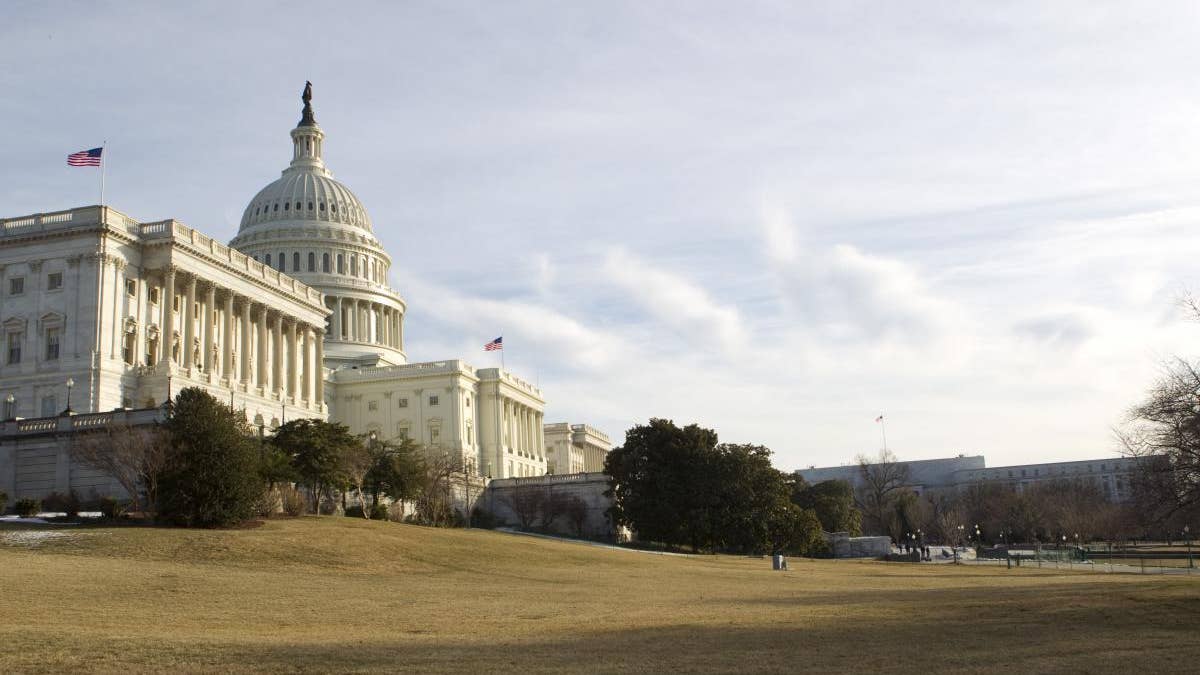
THE CANADIAN PRESS IMAGAES/Sean Kilpatrick (via AP Images)
Government funding runs out Friday, but Congress has to reach a deal by the end of the day Tuesday if it wants to avoid a lapse in federal finances. But not all federal agencies will suffer equally if lawmakers fail to approve another short-term stopgap measure or long-term FY 2011 budget bill in time. House Majority Leader Eric Cantor, R-Va., has said if a shutdown occurred it would be "partial" at worst.
A memo from Office of Management and Budget Deputy Director Jeffrey Zients, first obtained by The Washington Post, outlines contingency plans agency managers should begin to draw up should negotiations reach a stalemate. So what does a shut down mean for these agencies-and for your bottom line?
Here's how it all breaks down:
ENTITLEMENTS If a shutdown occurs, most officials say it will likely be brief, which means scheduled Social Security checks and food stamps would arrive and Medicare/Medicaid benefits would still be available-though staff might not be able to process new applications. Even in the event of a prolonged delay in funding, regularly scheduled payments will still be made.
PENTAGON The U.S. is involved in military engagements in Iraq, Afghanistan, and Libya, which has many worried that funding would dry up for our troops fighting abroad. But certain activities in the Defense Department are required by law to continue even if funding temporarily ceases so national security interests are not at immediate risk. Defense Secretary Robert Gates specifically addressed the matter in a House Armed Services Committee hearing Thursday, saying that any lapse in funding would not affect any current military operations.
Further, payroll for Pentagon civilian and military staff is electronically scheduled, so paychecks that cover work done through Friday will go out as scheduled. If a shutdown occurs and is brief, staffers are likely to see no gap in pay.
Despite apparent confusion, Pentagon Spokesman Geoff Morrell told reporters at a briefing Tuesday, "this is something we are still working through right now," and admitted the pay issue is a concern, but that no decision has been made.
PARKS & MUSEUMS Though the weather hasn't been too cooperative, tourists have begun to flood the Nation's Capitol for the Cherry Blossom Festival and to take in all the free museums and parks. But as nonessential facilities, national parks and Smithsonian museums are likely to close their doors during a shutdown.
In fact, the National Museum of American History-which contains the popular first lady gowns exhibit--instructed volunteer docents to stay home Saturday if funding isn't approved by April 8. In a memo obtained by Fox News Monday, museum Visitor Services Director Angela Lowther writes:
"Security staffing is being precisely assembled for a very limited number of essential staff and trust employees to work during a shut-down. Any additional staff or volunteers can't be accommodated with this limited security staff and will not be allowed to enter Smithsonian buildings. When Smithsonian museums re-open to visitors, volunteers and docents can return to work."
CONGRESS Though Congress holds most of the cards in this ongoing budget battle, it is, after all, an institution of the federal government. Nonessential operations would cease should funding lapse. But according to a House memo obtained Tuesday, the Legislative Branch is constitutionally obligated to keep running:
"Because a disruption in the legislative activities of the House would prevent the House from exercising its powers under Article I of the Constitution of the United States, essential employees should continue to perform their normal duties."
"[E]ach House employing authority shall designate as essential personnel only those employees whose primary job responsibilities are directly related to constitutional responsibilities, related to the protection of human life, or related to the protection of property. All other House personnel shall be placed in a furlough status by the appropriate employing authority until appropriations are made available."
FEDERAL WORKER PAY Congress will have to include in whatever budget legislation is eventually passed provisions to pay federal staffers who worked in essential capacity during the shutdown. As Fox News reported earlier, during the shutdowns that occurred in 1995-1996, nearly half a million such employees continued to work for retroactive pay. No guarantee exists for furloughed employees, who may or may not be paid for the time they're off work.











































